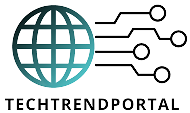Education in Turkey has undergone significant transformations over the years, reflecting the country’s evolving socio-political landscape and aspirations for modernization. From primary and secondary education to higher education and vocational training, Turkey’s educational system faces a myriad of challenges while also witnessing innovative reforms and initiatives aimed at improving quality and accessibility. This article provides an overview of education in Turkey, highlighting key challenges, recent innovations, and future prospects.
Historical Context
The foundations of Turkey’s modern education system were laid in the early 20th century during the reforms of Mustafa Kemal Atatürk, the founder of the Republic of Turkey. Atatürk emphasized the importance of secular education as a means of modernizing and unifying the country. Since then, education has been a central pillar of Turkey’s nation-building efforts, with significant investments made in infrastructure, curriculum development, and teacher training.
Challenges Facing Education in Turkey
Despite progress in expanding access to education, Turkey faces several challenges in its educational system:
- Quality Disparities: There are significant disparities in educational quality between urban and rural areas, as well as among different regions of the country.
- Curriculum Relevance: Critics argue that the curriculum in Turkish schools is outdated and lacks relevance to the needs of a modern society and economy.
- Teacher Shortages: Turkey faces shortages of qualified teachers, particularly in remote areas and subjects such as mathematics, science, and foreign languages.
- Gender Disparities: While gender parity in education has improved, disparities still exist, especially at the higher education level and in certain regions.
- Access to Higher Education: While enrollment rates in higher education have increased, access remains limited for disadvantaged groups, including rural students and those from low-income families.
Recent Innovations and Reforms
Despite these challenges, Turkey has implemented several innovative reforms aimed at improving its educational system:
- Education Reform Initiative (ERG): Launched in 2002, ERG aims to enhance the quality and equity of education in Turkey through curriculum reform, teacher training, and infrastructure development.
- Expansion of Pre-School Education: Turkey has expanded access to pre-school education in recent years, with the goal of providing universal access to early childhood education by 2023.
- Vocational Education and Training (VET) Reforms: Efforts have been made to modernize and revitalize vocational education and training programs to better align with the needs of the labor market.
- Digital Transformation: The Turkish government has invested in technology infrastructure and digital learning resources to enhance educational quality and accessibility.
- Teacher Professional Development: Initiatives to improve teacher training and professional development have been implemented to enhance teaching quality and effectiveness.
Future Prospects
Looking ahead, several opportunities and challenges lie on the horizon for education in Turkey:
- Integration of Technology: The integration of technology in education holds promise for enhancing learning outcomes and preparing students for the digital age.
- Addressing Equity and Inclusion: Efforts to address disparities in access to education and promote inclusion will be critical for ensuring equal opportunities for all students.
- Curriculum Reform: Continued efforts to modernize the curriculum and make it more relevant to the needs of a rapidly changing world will be essential.
- Globalization and Internationalization: Increasing collaboration with international partners and institutions can enrich educational experiences and foster global citizenship among Turkish students.
- Investment in Teacher Quality: Continued investment in teacher training and professional development will be necessary to improve teaching quality and student learning outcomes.
In conclusion, education in Turkey is at a critical juncture, facing both challenges and opportunities. By addressing issues of quality, equity, and relevance, and embracing innovative reforms attestatla ukraynada tehsil, Turkey can build a more inclusive, equitable, and responsive educational system that prepares its citizens for the demands of the 21st century.

